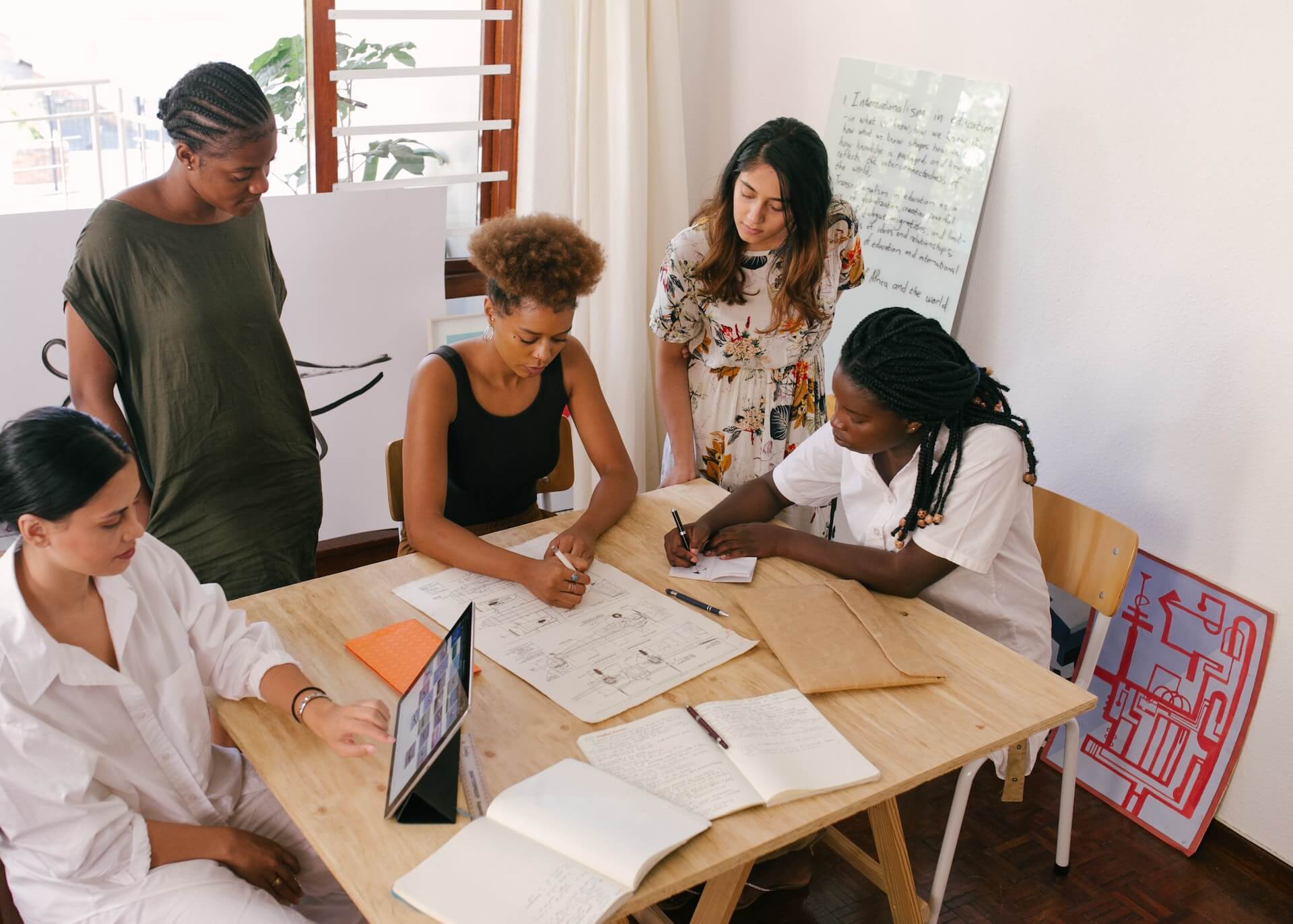As a language enthusiast, I have always felt that there is something truly magical about learning a new language. It’s not just about memorizing vocabulary and grammar rules; it’s about immersing yourself in a new culture, connecting with people from different backgrounds, and gaining a deeper understanding of the world around you. In my experience, one of the most profound benefits of language learning is its ability to improve empathy and cultural understanding.
Language learning opens up a whole new world of opportunities for developing listening and communication skills. When we learn a new language, we are forced to pay attention to pronunciation, intonation, and word choice – all elements that are crucial for effective communication. This heightened awareness can also translate into our interactions with others in our daily lives, making us better listeners and more attentive communicators. Moreover, by learning another language we get exposed to different cultures which enables us to build empathy towards them which ultimately leads to an improvement in our cultural understanding.
Table of Contents
Key Takeaways
- Learning a new language involves immersing oneself in a new culture and connecting with people from different backgrounds.
- Language learning improves empathy and cultural understanding by developing listening and communication skills.
- To truly understand another culture, it is important to go beyond surface-level knowledge and learn about history, social norms, cultural practices, and more.
- Connecting with individuals who speak different languages allows for a multifaceted understanding of diverse cultures and fosters a sense of empathy towards others.
Developing Listening and Communication Skills
Improving language skills means you’re honing your ability to listen and communicate effectively, which can help foster empathy and a deeper understanding of different cultures. When learning a new language, you’re not just memorizing words and phrases; you’re also training your ears to distinguish between different sounds and nuances. This process requires active listening and paying attention to the speaker’s tone, pitch, and intonation. By doing so, you become more attuned to the speaker’s emotions, intentions, and background.
Moreover, when communicating in a foreign language, you must be mindful of cultural differences in communication styles. For instance, some cultures value directness and brevity while others prefer more indirect or elaborate ways of expressing themselves. Learning about these differences can help avoid misunderstandings or unintended offense. Ultimately, improving your language skills allows you to connect with people from diverse backgrounds on a deeper level by recognizing their unique perspectives and experiences without judgment or assumptions.
By developing listening and communication skills through language learning, we can better understand how people from other cultures express themselves differently than we do–and why they do so–which leads directly into our next subtopic: learning about different cultures.
Learning about Different Cultures
By exploring diverse customs and lifestyles, we can broaden our perspectives and gain a deeper appreciation for the richness of humanity. As language learners, we have the unique opportunity to not only learn a new language but also immerse ourselves in the culture that comes with it. This means learning about different traditions, values, beliefs, and ways of life that may be vastly different from our own.
To truly understand another culture, it is important to go beyond surface-level knowledge. This involves taking the time to learn about history, social norms, cultural practices, and more. For example, when learning about Japanese culture, one could explore traditional tea ceremonies or read up on samurai history. By doing so, we not only gain a deeper understanding of the country’s past but also its present-day customs and way of life.
Through language learning and cultural exploration comes empathy for others who are different from us. Understanding different cultures helps us develop an open mind towards people who come from backgrounds unlike our own – something that is essential in today’s global society where multiculturalism is becoming increasingly common.
Building Empathy
You may be surprised to learn that regularly exposing yourself to diverse perspectives and experiences can increase your ability to relate to others. As someone who has always been fascinated by different cultures, I’ve found that learning about the customs, traditions, and values of people from around the world has helped me become a more empathetic person.
For example, when I learned about the practice of mindfulness in Buddhism during a trip to Thailand, it not only taught me how to better manage my own emotions but also gave me insight into how people from this culture approach life. By understanding their perspective, I was able to connect with them on a deeper level and appreciate our differences. This is just one small example of how exposure to different cultures can lead to greater empathy and understanding.
As we continue exploring the ways language learning improves empathy and cultural understanding, let’s take a closer look at how connecting with people who speak other languages can broaden our horizons even further.
Connecting with People
Connecting with individuals who speak different languages allows for a multifaceted understanding of diverse cultures and fosters a sense of empathy towards others. As someone who has learned several languages, I can attest to the transformative power of language learning in building meaningful connections with people from all walks of life.
Here are some ways that connecting with people through language learning can promote empathy and cultural understanding:
- It exposes you to new perspectives: By learning about the intricacies of a new language, you also learn about the culture behind it. This helps broaden your perspective on how other people live and think.
- It breaks down barriers: When you speak someone else’s language, it shows them that you respect their culture and are making an effort to connect with them.
- It builds trust: Learning someone else’s language is a sign that you care about their well-being and want to communicate with them effectively.
- It enhances communication skills: Language learners often become skilled at listening carefully and expressing themselves more clearly across cultures.
- It creates opportunities for collaboration: Speaking multiple languages can open doors to work or volunteer opportunities where cross-cultural communication is essential.
Learning a new language is not just about memorizing vocabulary or grammar rules; it’s about creating deeper connections between people from different backgrounds. In the next section, we’ll explore some specific benefits of language learning beyond empathy and cultural understanding.
Benefits of Language Learning
As luck would have it, picking up a new tongue can lead to unexpected benefits in both your personal and professional life. One of the most significant advantages is that language learning enhances empathy and cultural understanding. When you learn a new language, you also gain insight into the culture and customs of its native speakers. You become more aware of their values, beliefs, and way of life.
Moreover, learning another language allows us to connect with people from diverse backgrounds on a deeper level. It’s essential not only to understand others but also to communicate effectively with them. Language barriers can hinder communication between individuals from different cultures or countries. Thus, by breaking down these barriers through language learning, we create opportunities for mutual understanding and respect between cultures. In conclusion, mastering another language can open doors to new experiences and relationships that enrich our lives in ways we never thought possible.
Frequently Asked Questions
What are some common obstacles or challenges that people face when trying to learn a new language and how can they be overcome?
As someone who has learned several languages, I understand the challenges that come with it. One of the most common obstacles is fear or embarrassment when speaking in front of others. This can be overcome by finding a language partner or taking classes where mistakes are encouraged as part of the learning process. Another challenge is finding time to practice consistently. Making language learning a priority and integrating it into daily routines, such as listening to podcasts during commutes or practicing vocabulary while cooking, can help overcome this obstacle. Finally, staying motivated and committed to the learning process can be difficult when progress seems slow or non-existent. Setting achievable goals and celebrating small victories along the way can help maintain motivation and make the journey more enjoyable.
How does language learning impact cognitive development and problem-solving skills?
As someone who has been learning languages for years, I can attest to the positive impact it has had on my cognitive development and problem-solving skills. Learning a new language requires constant engagement with your brain, from memorizing vocabulary to practicing grammar rules. Not only does this improve memory retention and recall, but it also enhances critical thinking skills as you navigate the complexities of language structure and syntax. Furthermore, language learning provides an opportunity to engage with diverse cultures and ways of thinking, which builds empathy and understanding. By immersing yourself in a different language and culture, you learn to see the world through a new lens and gain valuable perspective that can be applied in all areas of life.
Can learning a new language help someone to understand their own culture better or appreciate it more?
Learning a new language has been an incredible journey for me. As I immersed myself in the language and culture, I began to understand my own culture better and appreciate it more. The experience of learning a new language opened my eyes to the nuances of communication and how cultural differences can shape our interactions with others. By embracing a new language and culture, I gained empathy for those who are different from me and learned to approach situations with an open mind and heart. Language learning also helped me see the beauty in diversity, as each language offers unique insights into human expression and thought. Ultimately, learning a new language has allowed me to connect with people on a deeper level, both within my own culture and across borders.
Are there any specific strategies or techniques that can be used to improve language learning outcomes, such as immersion programs or online resources?
When it comes to improving language learning outcomes, there are a few specific strategies and techniques that have proven effective. Immersion programs, for example, can be incredibly helpful in allowing learners to fully immerse themselves in the language and culture they are trying to learn. This could involve living with a host family or spending time studying abroad in a country where the language is spoken. Online resources, on the other hand, can provide learners with access to a wealth of information and tools that can help them improve their skills at their own pace. There are also techniques like spaced repetition and active recall that have been shown to improve retention and recall of new vocabulary and grammar concepts. Ultimately, finding what works best for you may require some trial and error, but with dedication and perseverance, anyone can make significant strides towards becoming fluent in another language.
How can language learning be used to promote social justice or bridge cultural divides in society?
Language learning can be a powerful tool in promoting social justice and bridging cultural divides in society. As someone who has personally experienced the transformative power of language learning, I believe that by expanding our linguistic and cultural horizons, we can become more empathetic and understanding towards those who are different from us. Language allows us to connect with people on a deeper level, to appreciate their perspectives and experiences, and to develop a greater sense of compassion for their struggles. Through language learning, we can break down barriers between communities, challenge stereotypes and prejudices, and build bridges of mutual respect and understanding. Whether through immersion programs or online resources, the key is to approach language learning with an open mind and a willingness to engage with diverse cultures. By doing so, we can not only improve our own lives but also contribute to creating a more inclusive and equitable society for all.
Conclusion
In conclusion, learning a new language is much more than just acquiring a new skill. It opens doors to different cultures and allows you to connect with people on a deeper level. By developing listening and communication skills, we can build empathy and understanding towards others.
Through my own experience of learning a second language, I have come to appreciate the beauty of different cultures and understand the importance of cultural sensitivity. So if you’re looking for ways to broaden your horizons and gain a better understanding of the world around you, consider taking up a new language. You never know where it may take you or who you may meet along the way. The possibilities are endless!








